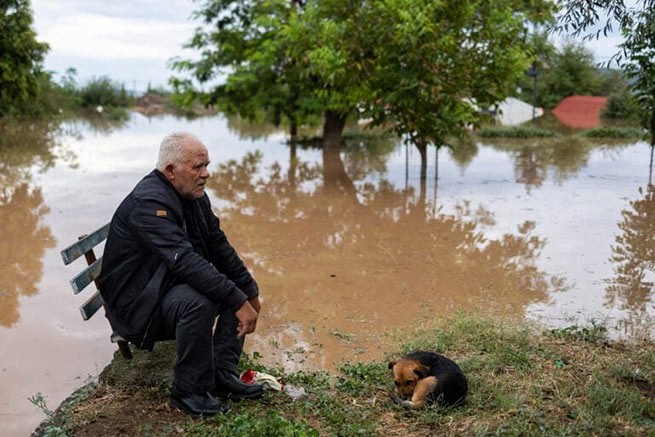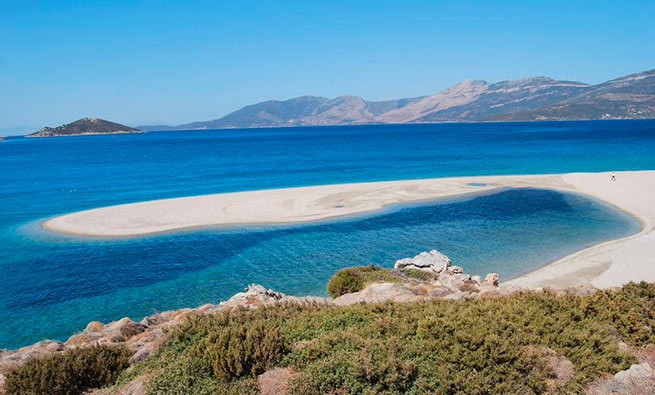In terms of the cost of fuel and electricity, Greece is ranked among the most expensive European countries. It ranks 4th in petrol prices and an unenviable 19th in wages.
The worst thing in this situation is that the forecast for 2023 is no less unfavorable, the wave of price increase will continue. The country’s population is in despair, as a monthly salary is not able to cope with skyrocketing prices in almost the entire spectrum of the economy.
The average salary of the Greeks is confidently almost at the very bottom of the rating of European countries – in nineteenth place, and the prices for fuel oil, gasoline and electricity raise Greece to the top of the list, but already in a different rating – by high cost.
At the same time, the Greek government resists with all its might and flatly refuses to reduce excise taxes and VAT on food. So ahead are nightmare months: sky-high prices in supermarkets, the shocking cost of gasoline and diesel fuel, three-digit numbers in electricity bills.
The data showing how much Greek households suffer from the current situation is curious. Ranked 19 out of 27 member countries EU in terms of wages, Greece pays its employees 1,116 euros per month – the average salary in the country. But it should be taken into account that for the calculation of wages in Greece, a reduction is made from 14 salaries provided for by Greek law to twelve, which are the basis for calculation in the EU. And then the average salary of Greek citizens falls even lower, to 956 euros per month, and Greece falls to the shameful, you can’t say otherwise, 24th place out of 27 EU member states.
But on the other hand, in another list, Greece is almost in the lead, ranking fourth in terms of the cost of simple unleaded gasoline – its price varies in the range of 1.85-2 euros per liter. At the same time, in the near future, the growth of world oil prices will increase this figure even more. The reason is that taxes make up about 60% of the price, and this is the main factor behind the almost highest price of unleaded gasoline in Greece among European countries.
Judge for yourself. At a price of 1.85 euros per liter, taxes are 1.11 euros, i.e. the “clean” price, without tax additives, is only 0.74 euros per liter! Last year, for a trip from Athens to Patras, with an average price of 1.510 euros per liter of unleaded petrol, the driver spent 23.84 euros on the trip. In the same year, at 1.85 euros per liter of the same gasoline, you will have to pay 29.21 euros. That is 5.37 euros more.
The “top” positions in the list of countries with expensive gasoline prices are shared with Greece by the Netherlands (2.018 euros), Finland (1.90 euros), Denmark (1.89 euros). And now attention, the average salaries in these countries are strikingly different from the Greek ones: Denmark 3914 euros, Finland 2509 euros, the Netherlands 2152 euros. In Greece, we recall, according to European systems of calculation, only 956 euros per month!
In terms of heating oil prices, Greece ranks 9th. And again, huge taxes are to blame, raising the cost of fuel oil to 1248 euros / liter. And in Europe? In 12 Member States less than 1 euro/litre! And at the same time, not in the poorest countries: in Luxembourg (the price of fuel oil is 0.905 euros), Austria (0.953 euros), Ireland (0.908 euros). And taking into account average salaries similar to Greece:
Latvia – salary 940 euros, fuel oil price 0.921 euros; Croatia – salary 984 euros, cost of fuel oil 0.893 euros; Hungary – the average salary is 929 euros, the price of fuel oil is 1.357 euros per liter.
However, this is not the limit, the situation is steadily deteriorating, and inflation hits records. According to preliminary estimates, the consumer price index for 2022 will be 3.1%, while the forecast of 0.8% is budgeted by the Ministry of Finance.
Even Finance Minister Christos Staikouras himself calculated that inflation of 5%-6% will remain at least until March next year. For 2023, it is projected at 1.1%. According to the latest published estimates by Eurostat, the harmonized consumer price index in Greece in January is forecast to reach 5.5%, compared to a 4.4% annual change in December 2021. It is worth noting that the last time the harmonized consumer price index was above 5% was in December 2010 (5.2%), while in the same year it reached 5.7% (September 2010). But it is worth remembering that nominal wages in Greece in 2020 were higher than today.
In the current situation, many electricity and gas bills will remain unpaid – it is expected that “inflated” payments will be received by consumers until next summer, writes newsbreak.gr. As a result, there will be a huge debt to the grid companies, which will have to be paid. At best, in installments, but this is not at all a fact. Might be worth following in the footsteps of a 30-year-old hotel owner in Rhodes, on a hunger strike near power company ΔΕΗ due to exorbitant energy bills that she is unable to pay or pay in installments? At the same time, it will be possible to save on products …






More Stories
Flood victims in Thessaly will pay property tax (ENFIA)
Fines of 1.5 million euros for 11 large retail chains, including Leroy Merlin, Attica and JYSK
Reuters reveals what the Mitsotakis government doesn't want to talk about: “Huge debt – low wages”